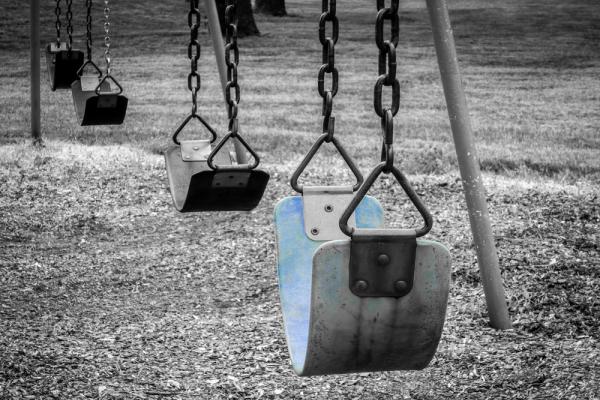An estimated 100,000 children fall victim to sexual exploitation in the U.S. every single year. It’s hard to wrap our minds around such a staggering number. How is it possible in the land of the free and the home of the brave that this many young people are being violated, and we don’t even know about it?
Through my work with Hope for Justice, I’ve come into contact with many young women and girls who have been sexually exploited right here in the U.S. Prior to seeing it first hand, it was easier to believe sex trafficking was something that only happened overseas—not in my own community.
Common threads began to emerge from every story: early childhood sexual abuse, abandonment, unstable families, and poverty, among others. Many of the teenagers we served had run away from volatile home situations only to find themselves victimized by strangers in order to survive.
In 2008, we supported our first domestic victim who had been sexually abused in her early childhood by a family member. She ran away from home when she was 14 and fell prey to people on the streets who exploited her further.
By the time she came to us, she was deeply wounded by years of abuse and neglect. She didn’t trust anyone and felt she could take care of herself. I spent many hours with her talking and laughing.
This smart and funny, young woman taught me one of the most valuable lessons. “You all are so quick to throw money at a problem, you don’t even realize that these young people have dreams, too. You should get to know them,” she said.
She went on to say, “Most of the kids I knew on the streets have been waiting their whole lives to be rescued. You’ll get one chance to do it, and you better do it right.”
These insights have informed how we carry out our mission:
- First, relationship is key. Many victims’ stories seem confusing, since they are often unsure of the details of their own experiences. The exact truth isn’t our main concern. The point is always that this individual is in need, and we have an opportunity to connect with no expectations—just unbridled love. Connection can change everything.
But let me warn you, it’s messy. Relationships are always messy.
- Second, quality is vital to success. We’ve seen many well-meaning people rush to meet the need without adequate knowledge or expertise. Many victims have severe mental health issues from the trauma they’ve suffered.
The most difficult moment to witness is when a victim comes forward but refuses help. Many of these women don’t identify themselves as victims. Imprisoned by the trauma that has been embedded into the very fabric of their being, they believe that what has happened to them is actually their own fault. As such, quality trauma counseling is paramount to successful restoration programs.
The hardest truth to understand in the fight against human trafficking is that true change starts long before women and children have been victimized. We have to address the issues that create the vulnerability that leads to abuse in the first place.
Hope for Justice recognizes the power of prevention as the ultimate way to end slavery once and for all. This year we plan to open our first phase of our Tennessee Housing Project, a place for at-risk youth. The project will help young people understand the risks and dangers of unhealthy decisions while offering safer alternatives.
Everyone who desires to follow Jesus’ command to love can pour that love into their own communities, where thousands of children languish in foster care, are legally tangled in the juvenile system, and are raising themselves with no strong adults to guide them forward.
These children in our communities are vulnerable to human trafficking unless each of us does something about it. Right here at home.
In Matthew 5, Jesus tells us to love our enemies. We should love even the unlovable, especially the downtrodden, the forgotten. Don’t be afraid to love those that the world says aren’t worth it, the throwaways, the ones we too often pretend don’t exist.
Love big, love strong, love deep with compassion and bravery. Love those who spit in your face and curse you, the ones who break your heart over and over again. Your love may be the catalyst that keeps that one person from becoming a statistic.
Who will end slavery? You will. How will we end slavery? By God’s grace, through love and fortitude. Not in a faraway place but right here, at home.
Stacia Freeman is the U.S. Director of Hope for Justice, International and has worked in the nonprofit antitrafficking field since 2006.
Got something to say about what you're reading? We value your feedback!
